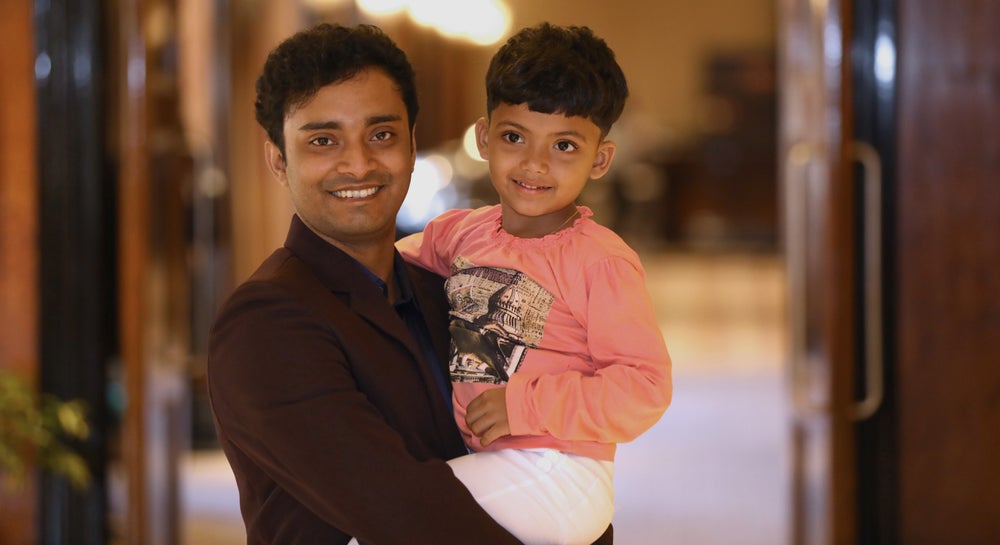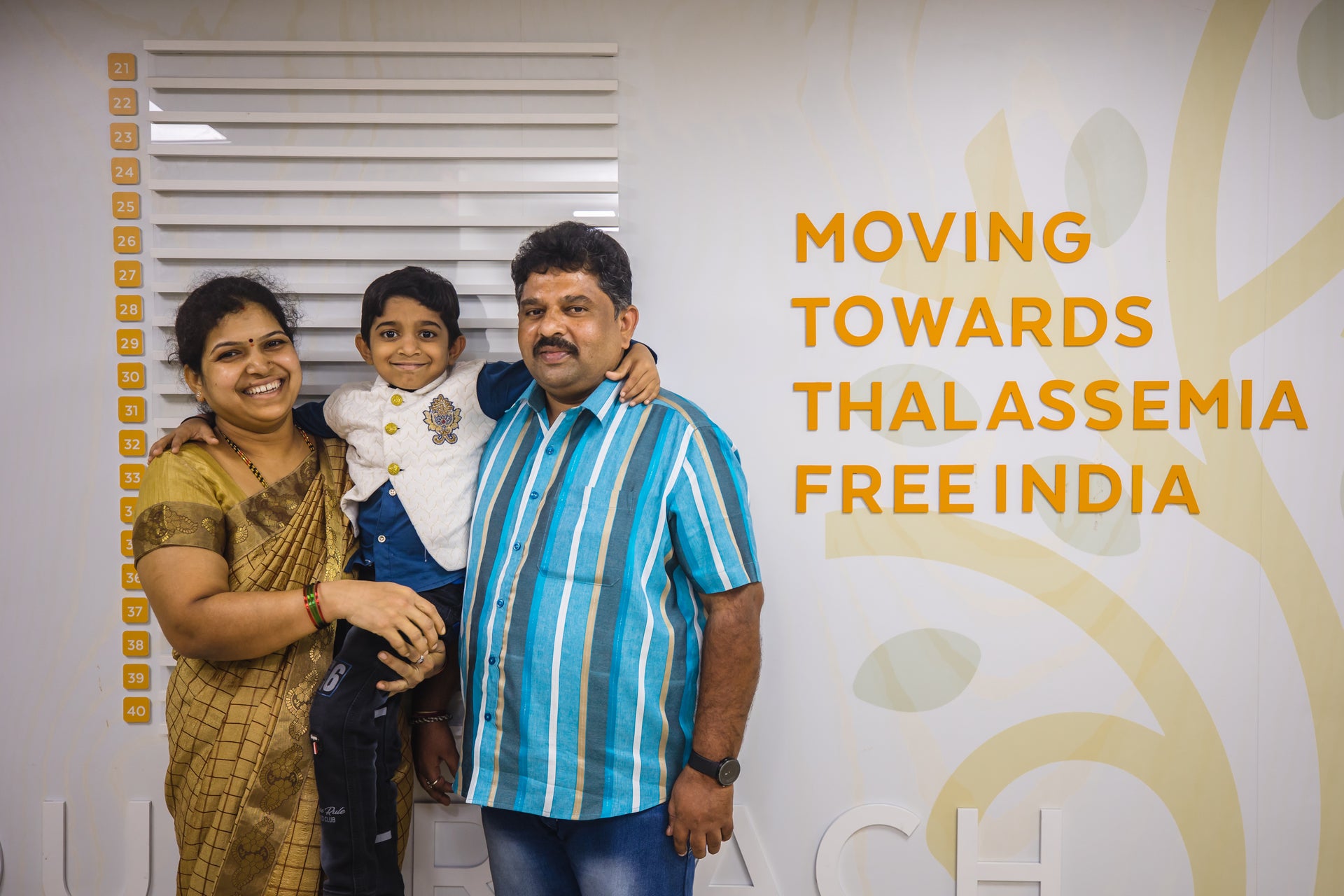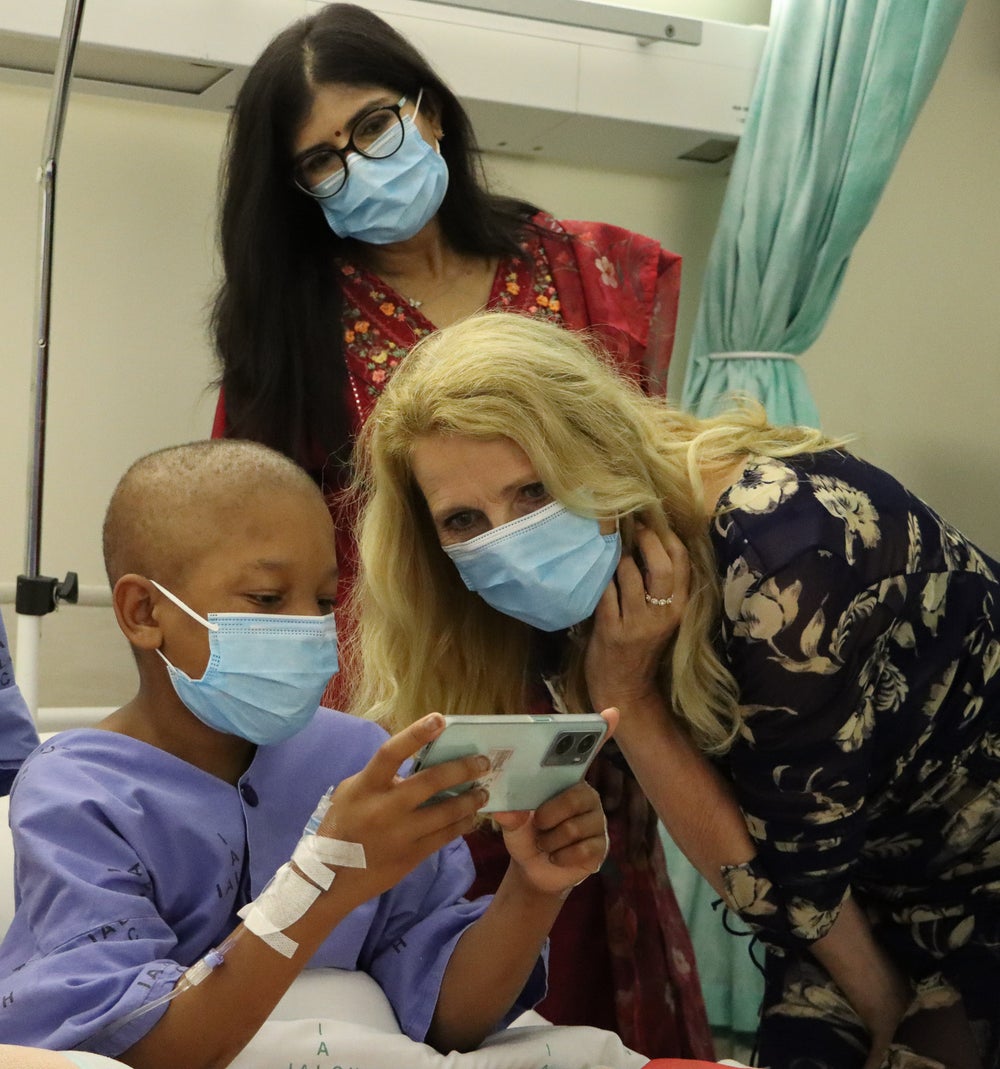Skip to main contentSkip to footer![A little Indian girl, who is smiling and wearing a pink hoodie, is standing next to a woman of whom only one arm and the hand are visible. The woman is holding some clothes in her hand. In the background, people in colorful clothing can be seen. A little Indian girl, who is smiling and wearing a pink hoodie, is standing next to a woman of whom only one arm and the hand are visible. The woman is holding some clothes in her hand. In the background, people in colorful clothing can be seen.]()
![A smiling man holds a young boy, who are donor and patient, in his arms. The man is wearing a dark shirt, and the boy is dressed in a pink long-sleeve shirt and white pants. Both are looking at the camera with warm, happy expressions. The softly lit background suggests a cozy indoor setting. A smiling man holds a young boy, who are donor and patient, in his arms. The man is wearing a dark shirt, and the boy is dressed in a pink long-sleeve shirt and white pants. Both are looking at the camera with warm, happy expressions. The softly lit background suggests a cozy indoor setting.]()
![A young boy in a red shirt, who is a thalassemia patient at thal camp in India, is being swabbed on the inside of the cheek, likely for a stem cell registration. The boy is looking in the camera and is sitting on a woman's lap, who is dressed in a vibrant red traditional outfit. Another boy wearing a turquoise shirt and black face mask is visible in the background. A young boy in a red shirt, who is a thalassemia patient at thal camp in India, is being swabbed on the inside of the cheek, likely for a stem cell registration. The boy is looking in the camera and is sitting on a woman's lap, who is dressed in a vibrant red traditional outfit. Another boy wearing a turquoise shirt and black face mask is visible in the background.]()
![A young boy lies in a hospital bed covered with a yellow blanket at a Sankalp BMT Unit. The CEO Elke Neujahr is standing by the bed and and leaning forward to engage with the boy. She is wearing a bright pink outfit and a pink mask. The other woman, dressed in a hospital gown, appears to be the boy's mother. The hospital room is softly lit and welcoming. A young boy lies in a hospital bed covered with a yellow blanket at a Sankalp BMT Unit. The CEO Elke Neujahr is standing by the bed and and leaning forward to engage with the boy. She is wearing a bright pink outfit and a pink mask. The other woman, dressed in a hospital gown, appears to be the boy's mother. The hospital room is softly lit and welcoming.]()
![A smiling family of three stands in front of a wall that reads 'Moving Towards Thalassemia Free India.' The mother on the left, wearing a gold sari, holds their young son in her arms, while the father on the right, stands beside them in a blue striped shirt. All three are looking happily at the camera. A smiling family of three stands in front of a wall that reads 'Moving Towards Thalassemia Free India.' The mother on the left, wearing a gold sari, holds their young son in her arms, while the father on the right, stands beside them in a blue striped shirt. All three are looking happily at the camera.]()
![A young male patient, who has a venous access at his arm, wearing a hospital gown and a medical mask, shows something on a smartphone to two women leaning in, also wearing masks. The CEO Elke Neujahr is wearing a black dress with a white floral print and smiling warmly, while the other, wearing glasses and a red outfit, watches from behind. The scene takes place in a hospital room, with a curtain and medical equipment in the background. A young male patient, who has a venous access at his arm, wearing a hospital gown and a medical mask, shows something on a smartphone to two women leaning in, also wearing masks. The CEO Elke Neujahr is wearing a black dress with a white floral print and smiling warmly, while the other, wearing glasses and a red outfit, watches from behind. The scene takes place in a hospital room, with a curtain and medical equipment in the background.]()

Improve Access to Transplantation
We help where help is needed
Blood cancer and blood disorders know no borders. Yet, patients in poorer regions of the world face significant challenges in accessing lifesaving treatment. Many families are burdened by treatment costs they cannot afford, often uncovered by insurance. In some cases, their country's healthcare system offers little to no financial support. Additionally, inadequate medical infrastructure and a shortage of specialized healthcare professionals in many regions make it difficult to ensure quality stem cell transplant services. Our mission is to bridge these gaps and provide more patients with the lifesaving treatment they so desperately need.

To accomplish this, we actively support patients whose geographic location or socio-economic status impedes their access to transplantation. To this end, it is critically important to reduce the financial burden and to minimize infrastructural barriers, such as a lack of treatment capacity in hospitals.

Our programs and activities
Our international activities to improve access to treatment cover three main areas:
1. Giving hope for a healthy future: DKMS Patient Funding Program
We help to cover the transplant costs for patients who would otherwise not have access to this vital treatment.
Find out more here.
This program facilitates access to lifesaving medical care by contributing to the costs of the stem cell transplantation. It is a program to lessen the financial barriers of transplantation and that provides support to patients who would otherwise not receive treatment.
We closely cooperate with other non-profit organizations that have a proven track record of financially responsible and high-quality transplantation. Additionally, patients and their relatives receive assistance in searching for other funding sources to cover the treatment and related costs. If required, the concerned NGOs may even waive any financial contribution from the families.
One example of the work our DKMS Patient Funding Program has done can be found in India. Since 2018, we have been supporting the local non-profit organizations Cure2Children and Sankalp India Foundation with organizational and monetary aid. These organizations facilitate access to affordable and reliable local treatment for life-threatening blood diseases for children in low-income countries. Their ultimate goal is to cure these patients. They are particularly committed to easing the burden of those suffering from thalassemia, carrying out stem cell transplants on a non-profit basis in two centers in India. Thalassemia is a hereditary blood disease that can be cured with a stem cell transplant, ideally done at an early age. The need for transplants in children is therefore extremely high. In collaboration with Cure2Children and Sankalp, we have contributed to the treatment costs of over 650 sick children in India alone. Moreover, our commitment extends beyond the country's borders with 45 children in Pakistan having received a stem cell transplant and with it a second chance at life!

Our DKMS Patient Funding Program also supports patients who have found a matching donor within the DKMS donor pool. We offer financial assistance to patients who cannot bear the costs associated with the procurement of stem cells from an unrelated donor or the transportation of the stem cells to the transplant center.
One of the patients we have already supported in this way is Jishan. Read his story here.
2. Finding the perfect match: DKMS Free HLA Typing Program
We assist people who need a stem cell transplant by aiding in their search for a donor within their own family. We facilitate HLA typing of the patients and their family members free of charge. If the search within the family is unsuccessful, we also help in the search for unrelated donors.
Find out more here.
With this program we identify family donors by carrying HLA typing costs for blood cancer patients and their relatives. We also support the search for an unrelated donor when patients cannot find a suitable match within their family. Through our Free HLA Typing Program we work in close collaboration with transplant centers and other non-profit organizations that pursue the same lifesaving mission in countries with limited resources.
An example of such assistance are the thalassemia camps in India. Thalassemia is an inherited blood disorder in which a defect in the protein hemoglobin reduces the transport capacity for oxygen in the blood, leading to life-threatening complications.
With over 42 million carriers, India is known as the thalassemia capital of the world. Many thalassemia patients require regular blood transfusions, the most effective treatment though is a stem cell transplant. Every year, more than 10,000 children are born with this condition in India alone, resulting in an extremely high need for transplants.

DKMS cooperates with local NGOs and transplant centers to organize typing events for pediatric thalassemia patients and their siblings. Families often travel far distances to reach those camps in hopes of finding a cure. DKMS covers the costs for the HLA typing of the buccal swab samples that are taken at these events. The samples from the camps are analyzed in our high-throughput laboratory, the DKMS Life Science Lab in Dresden. In cases where there is no matching sibling for a sick child, hope remains that an unrelated donor might be found or that a haploidentical transplantation (half-matched related donor) is a feasible alternative.
So far, our laboratory has typed over 65,000 samples under the DKMS Free HLA Typing Program. We were able to identify over 5,000 potential family donors and more than 1,900 children were given a second chance at life.
“Seeing the hopeful faces of the families who had taken on such great efforts to come to the camp, the siblings, some of whom were not yet two years old, but had already given their samples, and the many helpers and highly motivated doctors who tirelessly cared for and informed the families before they were called to 'swab' - all this moved us very much and confirmed to us the importance of our work!” - DKMS Access to Transplantation employee.
3. Empowering a better tomorrow: DKMS Capacity Building Program
We support nonprofit hospitals and organizations in countries with limited medical infrastructure by providing funding to expand treatment capacities. This enables more patients to access the critical medical care they urgently need.
Find out more here.
The DKMS Capacity Building Program is our program to advance treatment and care through infrastructural support and knowledge sharing. This program focuses on making a sustainable contribution toward the enhancement of high-quality and affordable hematopoietic stem cell transplantation. It provides funding for non-profit hospitals and organizations in countries with resource scarcity to help them deliver appropriate treatment, as well as training for physicians and nurses to advance the level of care.

One example of how this program enhances capacities at hospitals can be found in our collaboration with the nonprofit organization Sankalp India Foundation. Sankalp India carries out blood stem cell transplants at two centers in India; Ahmedabad and Bangalore.
The BMJH-Sankalp Bone Marrow Transplant Unit in Bangalore, launched in memory of Mechtild Harf in 2021, features ten beds and enables up to 120 transplants per year, primarily for thalassemia patients. The Ahmedabad center, also dedicated to Mechtild Harf, was inaugurated in February 2025 with a similar capacity.
Qualified medical staff is essential for ensuring excellent patient care. To address this, we actively support knowledge transfer and the training of doctors and specialized nursing staff. Through this collaboration, we aim to increase the capacity for cost-effective, high-quality transplants, providing treatment for patients who might otherwise not afford it. Additionally, as part of our DKMS Patient Funding Program, we help cover costs associated with transplantation to ease the financial burden on families.
Furthermore, we regularly invite members of the local medical community to symposia where we discuss best-practice examples and foster the exchange of expertise, which is an important benefit when it comes to providing patients with the best possible care. This also allows us to keep healthcare professionals up-to-date about recent developments, processes, and services that DKMS provides, including the support programs that we offer to transplant center coordinators, search units, and registries.
Other capacity building projects include:
- Casa Familia in Chile
- BMT Start-up Program
BMT Start-up Program
A program to enable transplant clinics to offer safe and effective low-risk stem cell transplantation with a matched family donor for children suffering from Severe Thalassemia or Sickle Cell Diesease.
More about our programs
If you would like to get in touch, please contact:
Transplant Center Services
Access to Transplantation


